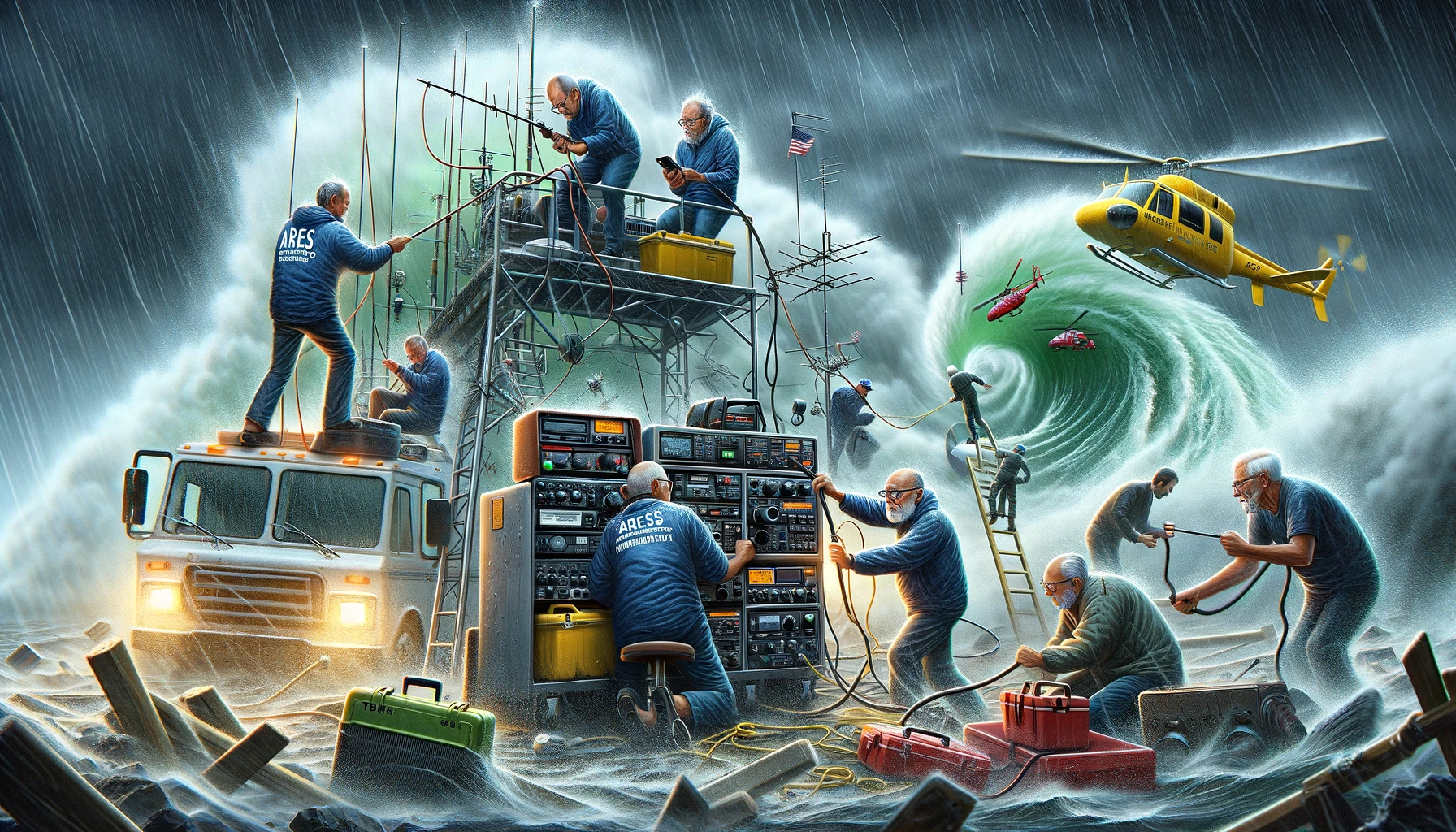
In the coastal town, known for its tranquil beaches and the soothing sounds of gentle waves, an impending disaster was about to unfold. Hurricane Hilda, a formidable storm, gathered strength far out at sea, casting a looming shadow over the peaceful community.
Local authorities, seasoned in handling such natural calamities, swiftly issued evacuation orders, urging residents to leave their homes and seek refuge further inland. Emergency services were on high alert, with communication networks primed to ensure the safety of the community.
Amidst the approaching chaos, a group of dedicated amateur radio operators, known as ARES (Amateur Radio Emergency Services), had set up a makeshift command center within the local community center. These radio enthusiasts shared a deep passion for emergency communication and were confident that their expertise would be indispensable during the impending disaster.
As the storm drew nearer, the town experienced power outages, flooding, and relentless gusts of wind. ARES members struggled to set up their antennas in the treacherous conditions. High winds and heavy rain made their task nearly impossible, and whenever they managed to erect their antennas, the wind knocked them down again.
Desperate to make a difference, ARES members tried to establish communication. However, they were met with frustrating obstacles. Every frequency they tuned to was jammed with noise from RFI (Radio Frequency Interference) caused by the storm’s electrical activity and interference from other amateur radio operators participating in “Parks on the Air” (POTA) activations, all trying to communicate simultaneously.
“Breaker, breaker, this is ARES Team Echo Foxtrot Quebec! We’re attempting to establish contact with Big Daddy. PLEASE COME BACK.”
Their calls were drowned out by the cacophony of interference, a chaotic mix of POTA operators calling out park names and signal reports, and overlapping radio chatter from other operators.
While ARES members persisted, the official authorities continued to manage the crisis with efficiency, utilizing modern communication systems that were less susceptible to the storm’s disruptions. Despite their best efforts, ARES found themselves struggling to contribute effectively.
When the hurricane finally passed, leaving behind a trail of destruction, the official authorities had successfully handled the emergency without relying on ARES’ unconventional assistance. The town’s mayor, appreciative of their dedication, gently informed them that their aid had not been necessary this time.
Though their contributions may not have been as essential as they believed, ARES members remained steadfast in their camaraderie. They gathered at the local Tim Hortons, sharing tales of their valiant but ultimately thwarted efforts during Hurricane Hilda.
Their commitment to emergency communication was undeniable, and they vowed to refine their skills and equipment to be better prepared for future disasters, where their expertise might truly shine, even amidst the jammed frequencies of POTA operators enjoying their hobby.



